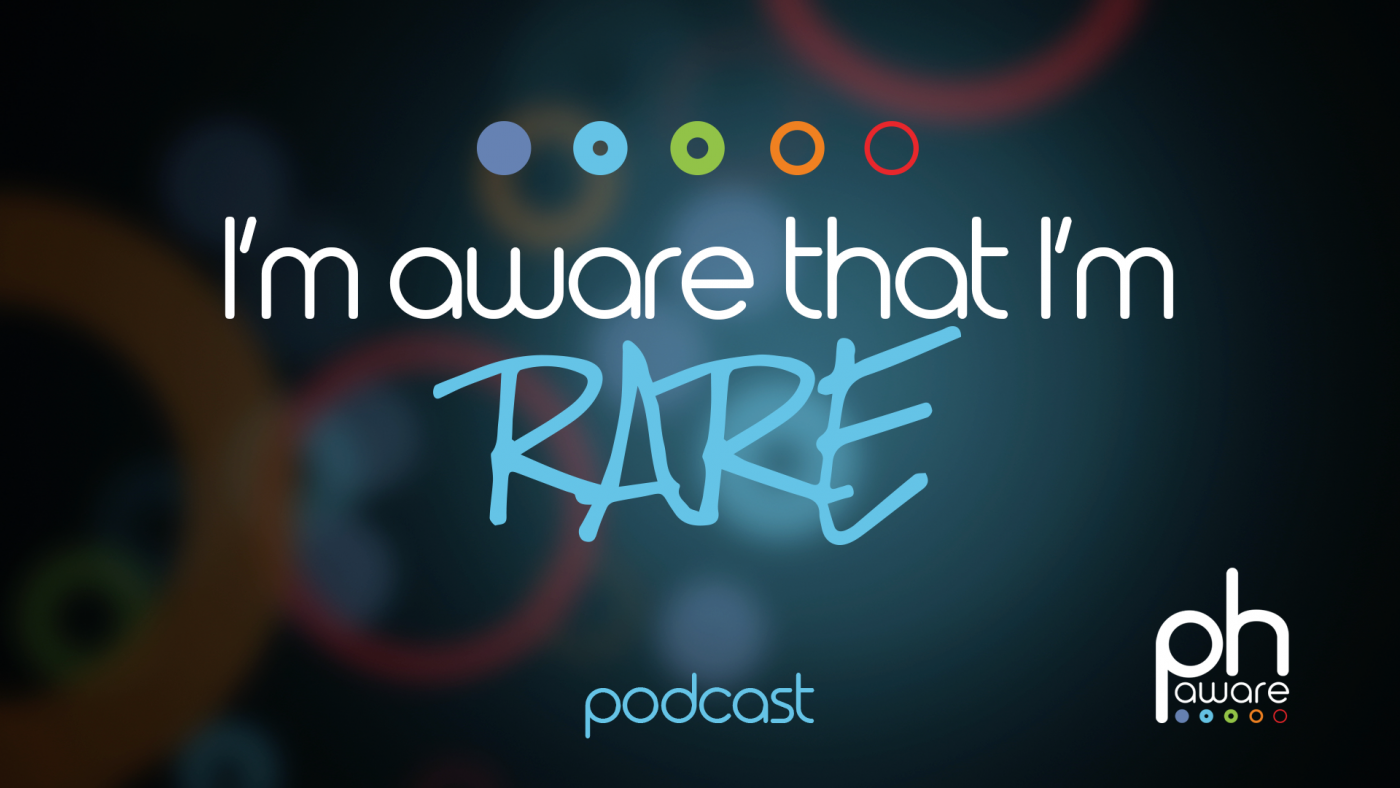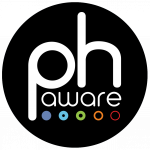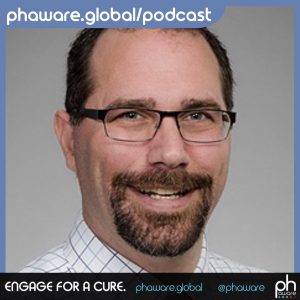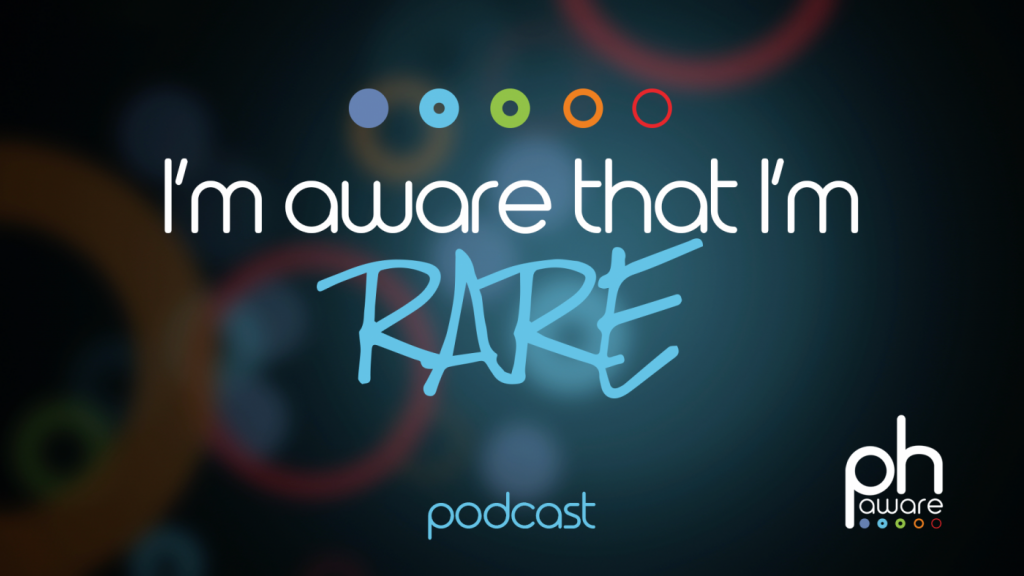Phaware Podcast: Peter Leary, MD, Part 1
Written by |

This podcast series, created and produced by phaware, is being offered as a regular guest feature on Pulmonary Hypertension News to bring the voices and life experiences of PH patients, family members, caregivers, healthcare specialists, and others to our readers. You may listen to the podcast directly, or read it via the transcript that runs below.
I’m Aware That I’m Rare: Peter Leary, MD
The phaware® interview Clinical Trials (Part 1 of 3)
Peter Leary, MD, is a specialist in pulmonary and critical care medicine who cares for patients with pulmonary hypertension. Leary is focused on clinical care and research for patients with pulmonary vascular disease. In Part 1 of his 3-episode series about clinical trials, Leary discusses ways patients and researchers can collaborate in clinical research to fight rare disease.
I’m Peter Leary. I’m a pulmonary hypertension physician in Seattle, Washington. I work for the University of Washington as part of the University  of Washington Pulmonary Vascular Disease Program, and have been there since about 2009. I also do a lot of clinical research, finishing up a PhD in epidemiology.
of Washington Pulmonary Vascular Disease Program, and have been there since about 2009. I also do a lot of clinical research, finishing up a PhD in epidemiology.
Today, I want to just chat a little bit about what’s involved in clinical trials and some of the aspects of clinical research that patients and providers can collaborate with in order to make progress that is so important in this disease.
The biggest thing about a clinical trial is that we’re trying to answer questions that we don’t know the answers to yet. We may all have suspicions, we may have thoughts, we may have hopes for what a clinical trial is or is not going to show us, but the reality is we don’t know the answer. So, when you go into a clinical trial, it’s important that everyone is on the same page, that everyone realizes that they’re in it together, because if expectations are misaligned, then nobody ends up being happy. But if everyone really thinks about it — that they are working to help either make people with this disease feel better, or in the best-case scenario, working toward cures or treatments for this disease — then I think everyone comes out of a clinical trial really feeling like they’ve done something important.
Now, when I say that we don’t know the answers to the questions in the clinical trial, it doesn’t mean that we don’t know what’s happening. Clinical trials are often the culmination of lots and lots and lots and lots of research to get to that point. They’re very carefully watched, they’re very carefully controlled, and so we have a pretty good idea of what to expect, and a very firm and solid plan of how we’re going to follow people over time. And so, if people are interested in research, and want to be part of that process, then we sit down and kind of go through specific studies that they might be eligible for, what’s involved in those, whether or not those also work with them.
When you think about clinical research, I think about it on two wings. You’ve got clinical trials on one side, and then you have observational research on the other side. Observational research is participating in registries, it’s participating in things which you are not actively taking a drug, doing an exercise program, changing your diet. There’s no change as part of the research. But those observational research cohorts oftentimes do involve more than just asking you questions. Sometimes they’ll involve MRIs, or echos, blood work. And the idea is that you take a bunch of people together and you look for trends and you try and figure out, “Okay, this group of patients is doing better. Why are they doing better? This group of patients is doing worse. Why are they doing worse?”
Approach-focused trials?
An observational trial almost never fully answers a question, but in terms of brainstorming about places where we can go and try and make progress in this disease, it plants a lot of seeds. And so, you take those seeds, or sometimes you take seeds from basic science research, and those will go on to be clinical trials. And so, clinical trials are going to be some kind of an intervention. I think we’re going to see a lot more trials that may be less drug-focused. It may be approach-focused, trying this pathway of how to add things or how to assess people. It may be device-focused. So, I think you’re going to see more trials on that side of the fence than have historically been there.
But in all trials, you’re doing something and then following up over time to see whether or not the group that got the intervention did better than the group that didn’t get the intervention. The hope is always that you find something that helps people feel better, but you don’t know until the end whether that’s the case. What you do know in the middle is almost all trials have a series of middle points that are basically safety checks where a group sits down, looks at all the data that’s been collected so far to say, “It looks like what we’re trying to do may not be helping, it may be hurting.” And so you don’t have to wait for the end of a trial to know whether your intervention in a trial might be hurting.
It’s rare that something gets to the point of a clinical trial and is something that is harmful. Normally, the work that has preceded it is pretty good at differentiating that, but it’s not impossible, and so that’s why we have these early checks. In general, if you give somebody a drug, whatever it may be, let’s say you have heart disease and I tell you to eat rice for two weeks, we don’t think that that will necessarily help your heart disease. But as a human being, there’s a certain sense of optimism and enthusiasm that, “Hey, I’ve done this. I’ve participated in this. It must be helping me.” And so, particularly for things like, “How am I feeling?” Or, “How far am I walking?” You get a placebo effect where you will feel better, even if the drug or the intervention isn’t doing anything to help you.
Now, for the vast majority of people, that’s transient. That doesn’t stay long-term. But when we’re comparing a new drug, or a new intervention, or a new approach, you always want to compare it to something that will feel exactly the same to the patient so that you can compare and say, “Okay, I’ve got drug A over here and I’ve got placebo over here. The people with placebo felt 10% better. People with drug only felt 10% better. That’s not a good drug. It didn’t do anything over just giving somebody a sugar pill.” But if you give them the drug and they feel 50% better, then you know you’re beating placebo. That’s a drug that probably is making a difference in one way or another in the lives of the people who are taking it. That’s something that’s worth pursuing.
My name is Peter Leary, and I’m aware that I’m rare.
EVERYBODY HAS A STORY. WHAT’S YOURS?
Phaware global association wants to share your pulmonary hypertension story with their engaged global audience. Whether you are a patient, caregiver, or medical professional, they are enlisting PH community members from around the world. Visit www.phawarepodcast.libsyn.com/contact to share your story and to be considered for a future episode. Never miss an episode with the phaware® podcast app. Learn more about pulmonary hypertension at www.phaware.global. #phaware
***
Note: Pulmonary Hypertension News is strictly a news and information website about the disease. It does not provide medical advice, diagnosis, or treatment. This content is not intended to be a substitute for professional medical advice, diagnosis, or treatment. Always seek the advice of your physician or other qualified health provider with any questions you may have regarding a medical condition. Never disregard professional medical advice or delay in seeking it because of something you have read on this website. The opinions expressed in this column are not those of Pulmonary Hypertension News or its parent company, Bionews Services, and are intended to spark discussion about issues pertaining to pulmonary hypertension.






Leave a comment
Fill in the required fields to post. Your email address will not be published.